I didn't focus much on fish pictures this trip. It's not that I don't like to get good fish pictures, but they're even more difficult than other underwater photos because they're skittish moving targets. But I still took lots of fish photos when the opportunity presented itself. (Warning: this is a long post)
Shelley and I both thought the fish were more numerous than last time we were here (about 5 years ago). Covid would have meant reduced fishing, but I'm not sure if that explains it. We asked the locals but they didn't seem to think it had changed much. Of course, for them it would change so gradually they might not notice. In any case, it was good to see lots of fish.
One of the few fish that sit still to be photographed are the Stone Scorpionfish. They are masters of camouflage, but once you know what to look for, they're not too hard to spot. Usually I'll spot one of the side fins that stand out because the pattern is a little too regular. (center of this photo) They are ambush predators so they're used to sitting still. They also have venomous spines so, as usual, you don't want to try to grab one. This one appeared to have sat there long enough for the sea star to start climbing over it.
This was one of the few that had picked an exposed spot to sit and was quite obvious.
Bluespotted Jawfish are a little trickier to photograph because they withdraw into their burrows when you get close. If you add a stone to the wall around their burrow and wait, sometimes they will pop up and push the rock away with their head. It's amazing that they can dig a burrow like that with no arms or legs.
The little blennies also hide but they usually use abandoned worm tubes.
Pixy Hawkfish liked to hide in the coral. It was often worth looking closely at the the infrequent hard coral - there were often multiple creatures hiding in them. I saw fish, crabs, shrimp, and brittle stars.
There were other fish that you'd find sitting on the rocks, but unlike the scorpionfish, they would take off if you got too close.
Occasionally fish will be curious and come to check you out, like this pair of Cortez Angelfish.
The other common angelfish are the King Angelfish.
Giant Damselfish are a little easier to photograph because they have a small territory that they stick to and defend.
I like some of the odd shaped fish, like the Spotted Boxfish, Porcupinefish, and Guineafowl Puffers.
Baja doesn't have as many colorful fish as a more tropical coral reef, but it still has some brilliantly colored ones, like these Blue & Yellow Chromis (aka Limbaugh's Chromis)
And some of the tiny ones like this Bluebanded Goby are also very colorful if you can get a close look.
Moray Eels are fairly common, although they're easy to miss hiding between rocks and in crevices. Technically they are a kind of fish. The most common are what we have always called Green Moray Eels, but iNaturalist calls them Chestnut Moray Eels. Apparently the color can vary from brown to green, but the ones we've seen have been quite green. They often look quite fierce with their gaping mouths and pointed teeth but the open mouth is mostly because that's how they breathe. Occasionally you see them out swimming around.
We also saw a few Jewel Moray Eels:
Stingrays are usually hidden in the sand. Often what you spot is their straight tail which stands out. Next you might see an eye looking at you. You can get quite close if you move slowly.
I was slowly approaching these two when a couple of fish came over to see what I was looking at and scared the stingrays away.
We didn't see many eagle rays, and only from a distance so I didn't get any good photos. It took some heavy editing to make the eagle ray clearer in this shot.
And we only saw one sea turtle, also from a distance. No photos of it I'm afraid.


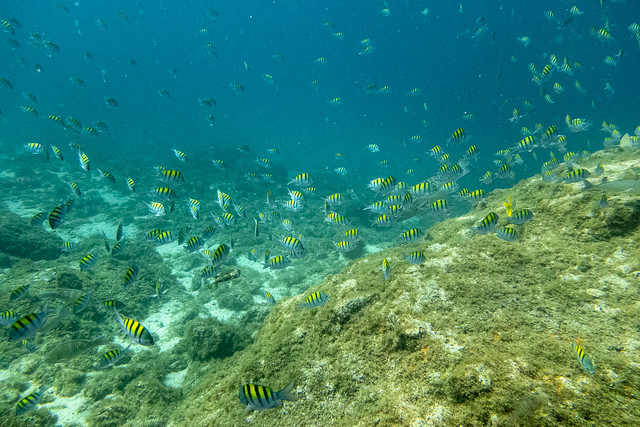




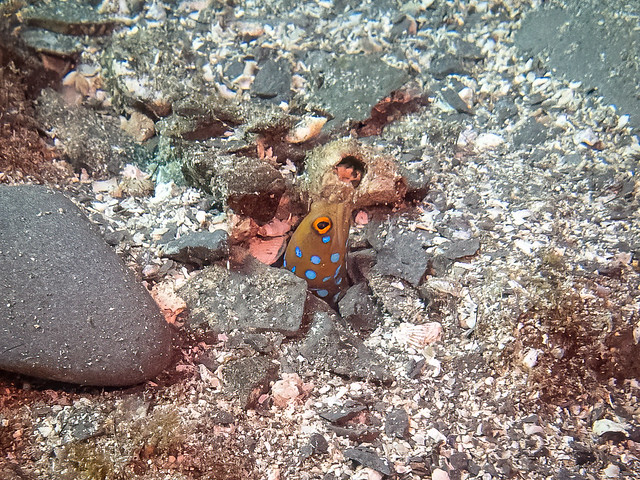
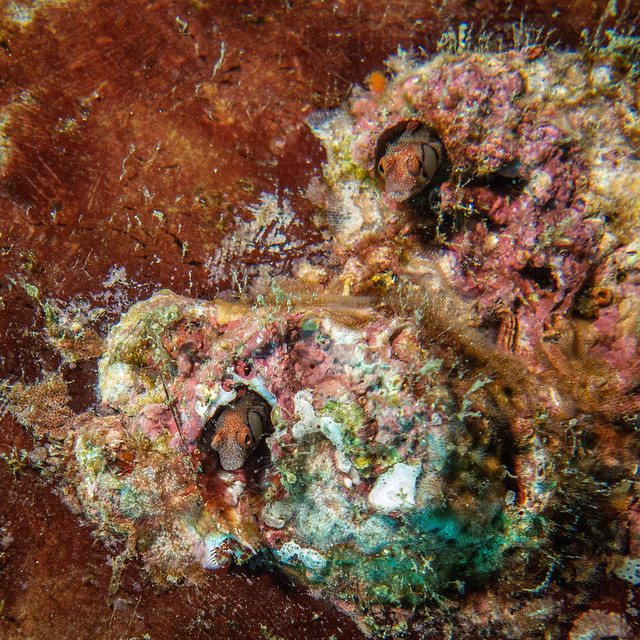



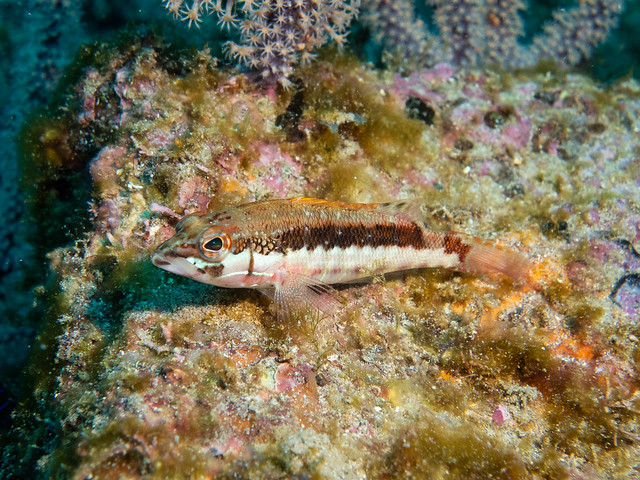
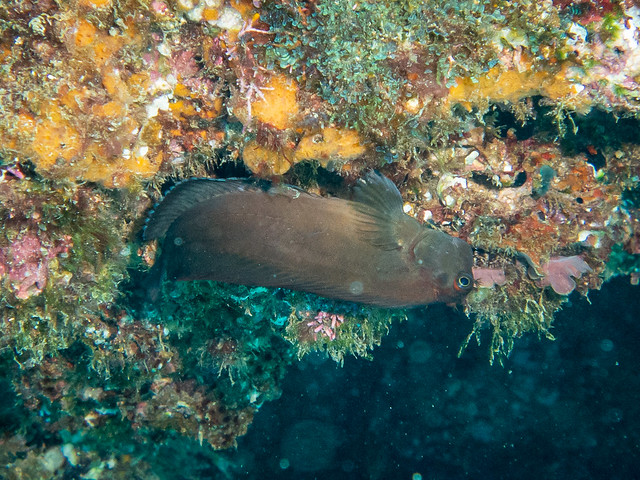




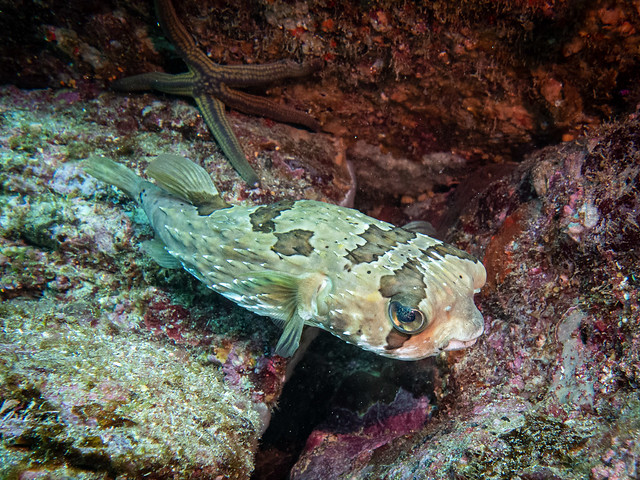




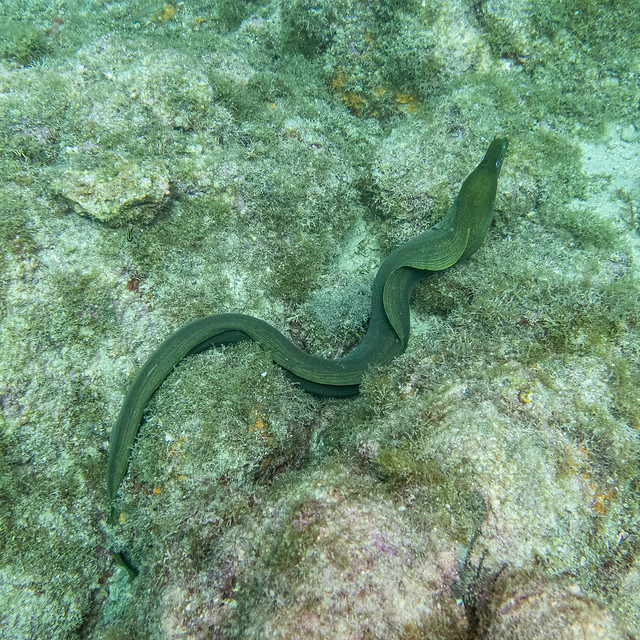




No comments:
Post a Comment